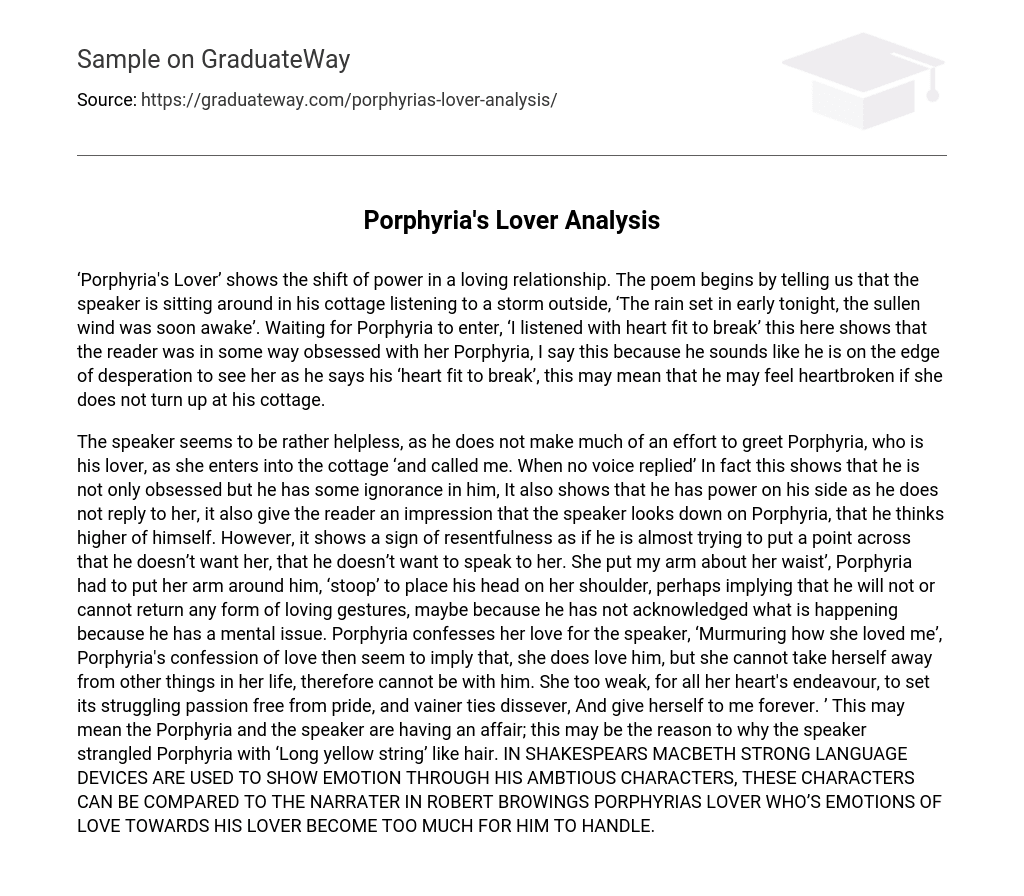‘Porphyria’s Lover’ portrays a shift of power within a loving relationship. The poem commences with the speaker recounting their presence in a cottage, captivated by a storm outside: ‘The rain set in early tonight, the sullen wind was soon awake’. While awaiting Porphyria’s arrival, the speaker anxiously listens, their heart teetering on the verge of breaking. This fascination with Porphyria suggests a deep infatuation, as the speaker dreads the possibility of her nonappearance, potentially resulting in heartbreak.
The speaker appears helpless, showing little effort to greet Porphyria upon her arrival at the cottage. By not responding to her call, it suggests both obsession and ignorance within him. Moreover, his lack of reply demonstrates his perceived power over Porphyria and hint at his disdain for her. There is also a sense of resentment as he seems to emphasize his unwillingness to engage with her. When Porphyria embraces him and lowers his head onto her shoulder, it implies that he is either unable or unwilling to reciprocate any affectionate gestures due to a mental issue. Her confession of love emphasizes that she does indeed love him, but other commitments prevent her from fully being with him. She is too weak to overcome her pride and other obligations in order to give herself to him completely. The affair between Porphyria and the speaker may be the reason behind his violent act of strangling her with her own hair, described as a “long yellow string.”The use of strong language devices in Shakespeare’s Macbeth serves to depict the emotions of his ambitious characters. These characters can be likened to the narrator in Robert Browning’s Porphyria’s Lover, who becomes overwhelmed by his intense feelings of love for his beloved.





